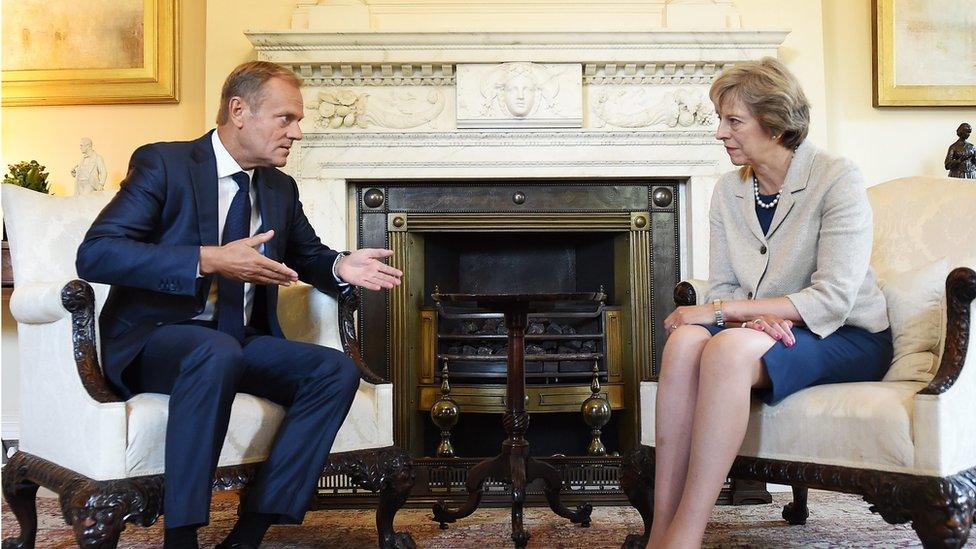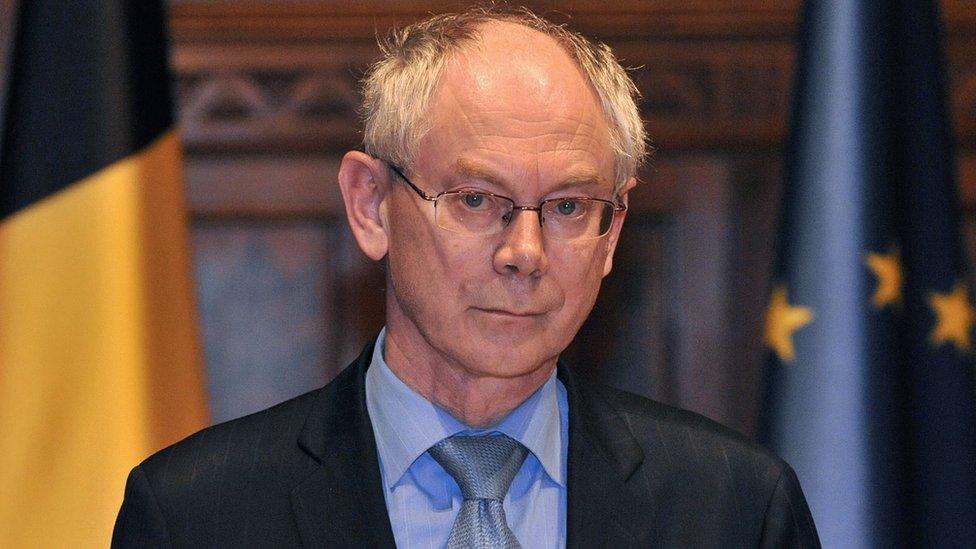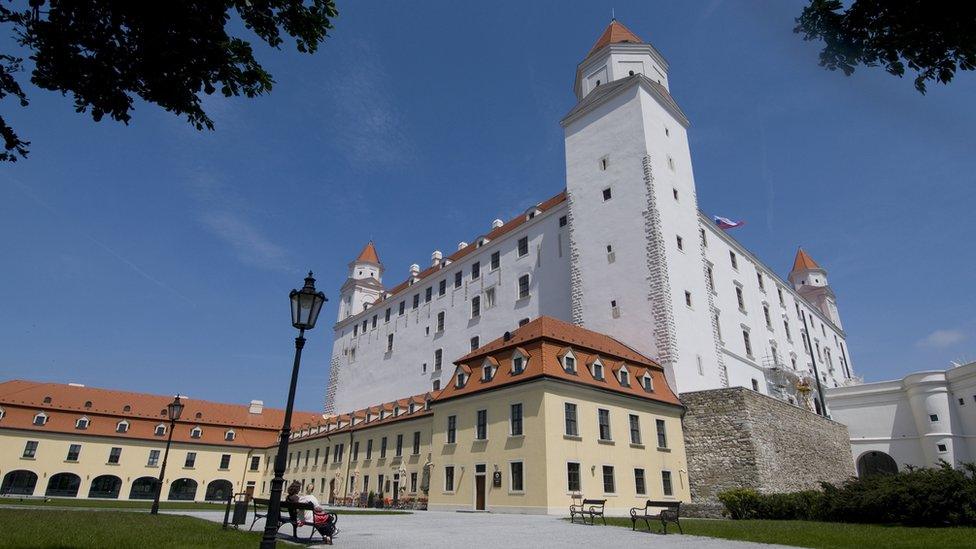Theresa May could begin Brexit process by February, says Tusk
- Published

Theresa May met European Council president Donald Tusk last week in London
UK Prime Minister Theresa May is likely to trigger the formal process of leaving the European Union early next year, according to a top EU official.
European Council President Donald Tusk said Mrs May had told him the UK could be ready to begin talks by February.
The BBC's Tom Bateman says this is the clearest sign yet of when the two-year withdrawal process may start.
Mrs May's office said it would not be launched this year, but did not confirm Mr Tusk's account.
Formal negotiations over the withdrawal cannot begin until the UK triggers Article 50 of the Lisbon Treaty, the formal mechanism for leaving the union.
The timing of the process has so-far been clouded by uncertainty, with no clear signal from Mrs May's government on when it would begin.
There is also confusion over the nature of the the UK's future relationship with the bloc, especially whether it intends to remain a member of the single market.
German Chancellor Angela Merkel said on Thursday that the European Union was in a "critical situation" as EU leaders met
Mr Tusk spoke from the Slovakian capital, Bratislava, where Europe's 27 other leaders are gathered for an informal summit without the UK.
Speaking about a meeting with the British PM in London last week, Mr Tusk said: "Prime Minister May was very open and honest with me.
"She declared that it's almost impossible to trigger Article 50 this year but it's quite likely that they will be ready maybe in January maybe in February next year."
European Commission President Jean-Claude Juncker insisted that the UK could not get access to the single market without accepting the free movement of workers.
Mrs May has indicated that in any negotiations, her government would insist on placing curbs on EU citizens entering the UK.
'High-wire act'
Our correspondent says invoking Article 50 early next year may be ambitious, as the prime minister has made clear she she wants time to prepare the best deal for Britain.
During the Bratislava summit, the 27 remaining members states unveiled a six-month "road map" of measures designed to restore public confidence in the EU.
But rifts over the record influx of refugees and migrants were on display as soon as the meeting ended.
Matteo Renzi, the Italian prime minister, said: "I'm not satisfied with the conclusions on growth or on immigration.
"To define as a step forward today's document on migrants would require a form of fantasy, a verbal high-wire act."
- Published15 September 2016

- Published13 September 2016
